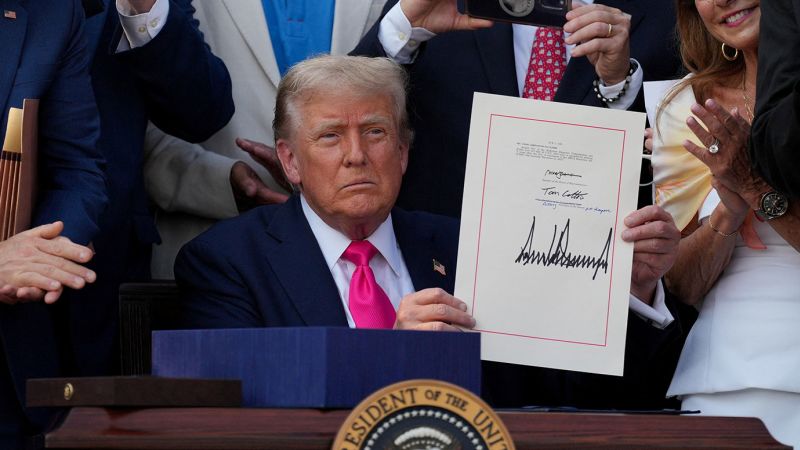Trump Fires BLS Chief, Threatens Economic Data Integrity

Donald Trump dismissed the head of the Bureau of Labor Statistics (BLS), Erika McEntarfer, on Friday, following the release of employment data that contradicted his administration’s narrative regarding the U.S. economy. This decision may undermine the integrity of critical labor statistics relied upon by businesses and policymakers, raising concerns about the potential long-term impact on economic stability.
The BLS is responsible for providing reliable labor data, essential for informing economic decisions. Its reports shape understanding of trends in employment and wages, serving as a benchmark for evaluating the health of the American economy. By firing McEntarfer, Trump has sent a troubling message regarding the independence of such vital statistical agencies.
According to Aaron Sojourner, a labor economist at the W. E. Upjohn Institute for Employment Research, “Credible statistics and agency independence go hand in hand. Attacking independence damages the credibility of the statistics.” The independence of the BLS is crucial, as it ensures that data remains unbiased and reflects true economic conditions.
The recent BLS report revealed downward revisions to job numbers for May and June, which had been unexpected by many, including White House economists. Stephan Miran, who serves as an economic adviser in the Trump administration, acknowledged that the revisions were not what the administration had hoped for. He described the alterations as possibly resulting from seasonal “quirks” in the data, emphasizing the importance of accurate reporting.
Trump’s reaction to the BLS report included unsubstantiated claims that the agency had manipulated data to present a negative view of the labor market. In a statement on social media, he asserted that the monthly jobs numbers were “RIGGED” and later told reporters, “I believe the numbers were phony.” Such assertions lack empirical support, as multiple economists, including those who have served under both Republican and Democratic administrations, have indicated that the BLS data was consistent with established methodologies.
The implications of this dismissal extend beyond the immediate political landscape. Economists warn that if the credibility of labor statistics is compromised, it could lead to more tumultuous economic conditions. Should businesses and decision-makers lack reliable data, they may struggle to navigate economic challenges effectively, potentially exacerbating issues like inflation and recession.
Critics have characterized Trump’s actions as more akin to tactics used in less democratic regimes. Jason Furman, a Harvard economist, remarked that the decision to fire McEntarfer is “closer to what one expects from a banana republic than from a major democratic financial center.” He highlighted that her role was fundamentally about maintaining the integrity of employment data, separate from direct economic policy influence.
Despite the gravity of this situation, initial reactions on Wall Street have been relatively muted. The BLS operates as a robust institution with standardized practices that have evolved over many years. This resilience makes it difficult to alter data significantly on an individual basis. Nonetheless, the broader implications of McEntarfer’s dismissal raise concerns about how future data may be perceived by the public and the markets.
The firing sends a cautionary message to other professionals within the Bureau and similar agencies: data and conclusions must align with the administration’s preferences, or there may be consequences. The long-term effects of this development could have serious ramifications for the economic landscape in the United States, as accurate and independent data becomes increasingly critical in navigating complex economic realities.
As the administration continues to grapple with economic challenges, the need for credible labor data is more pressing than ever. The integrity of economic statistics is a cornerstone for informed decision-making in both private and public sectors, and any erosion of that trust could have lasting negative impacts on the economy.






